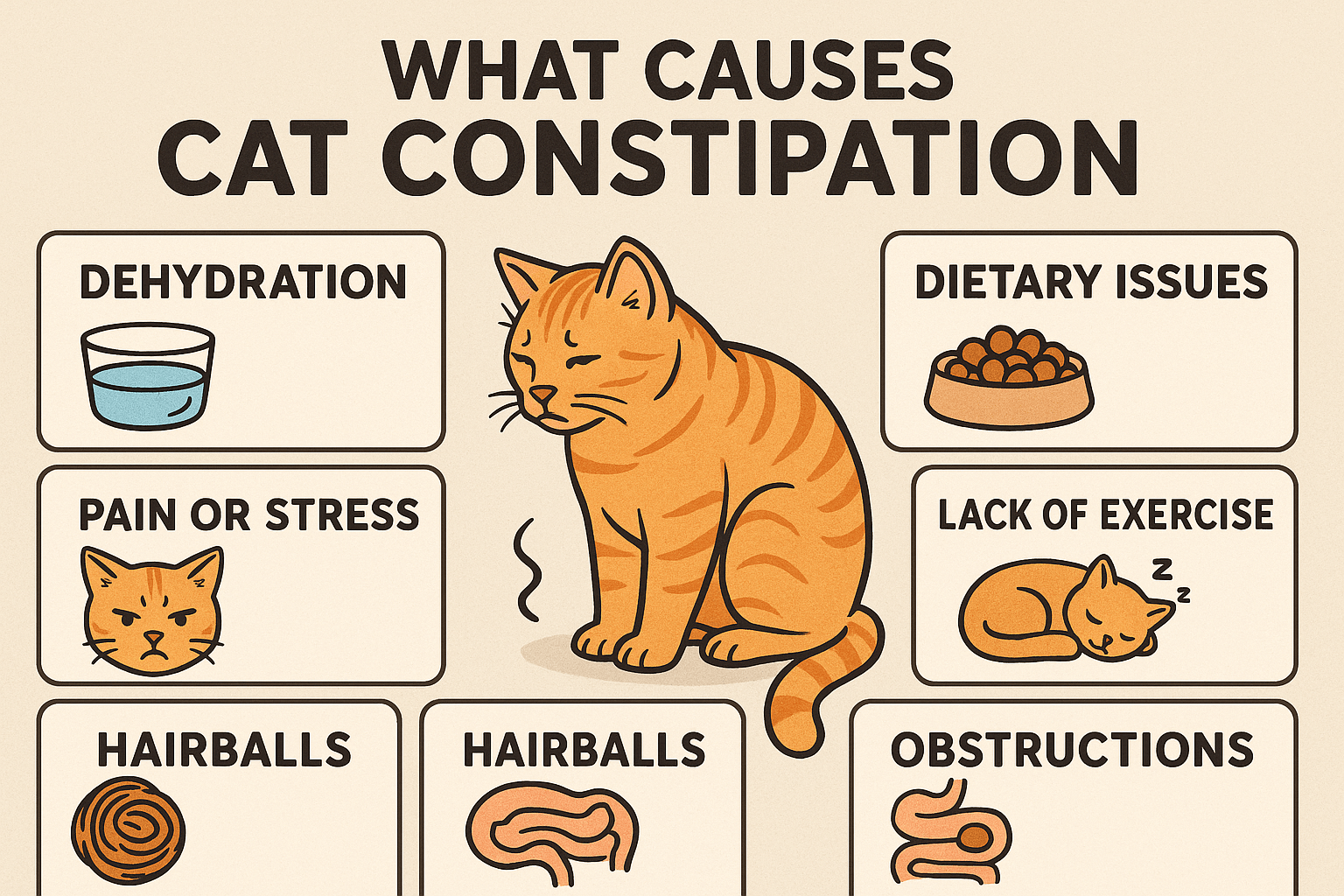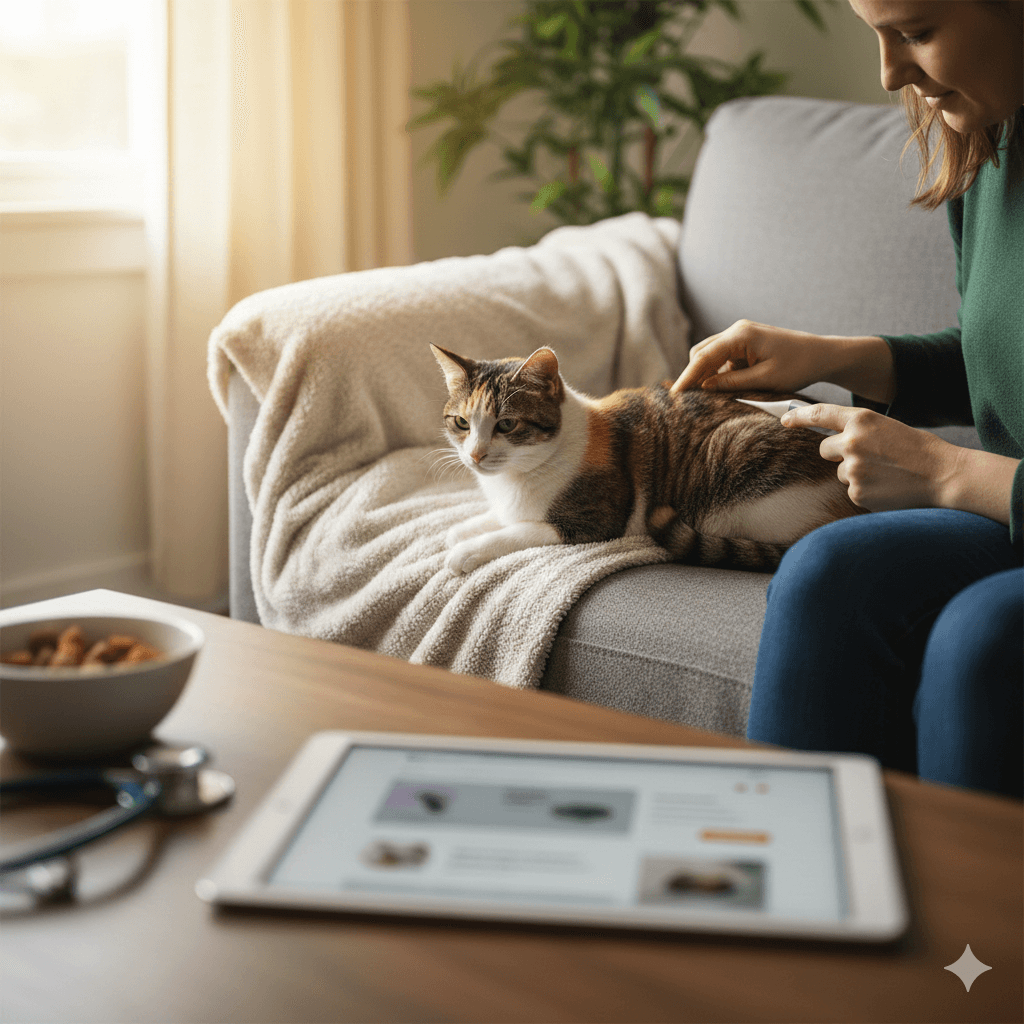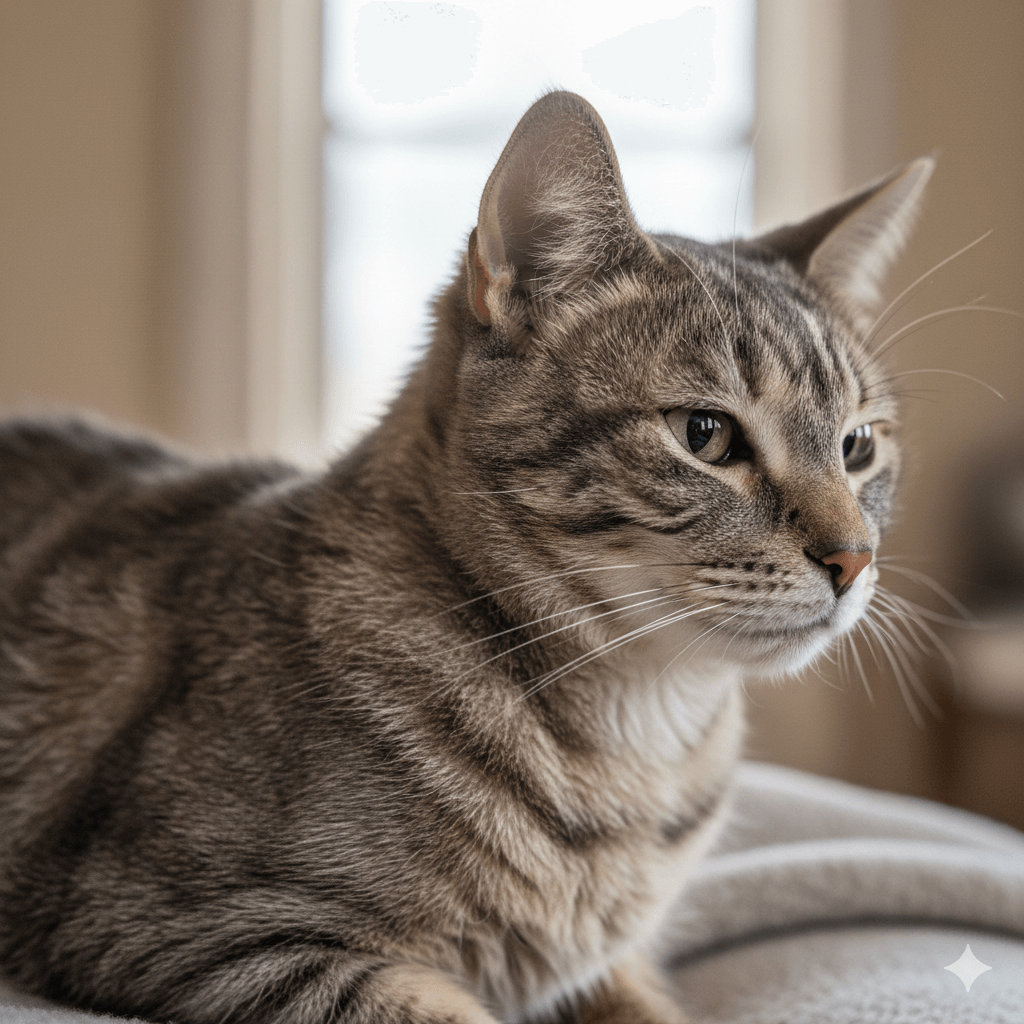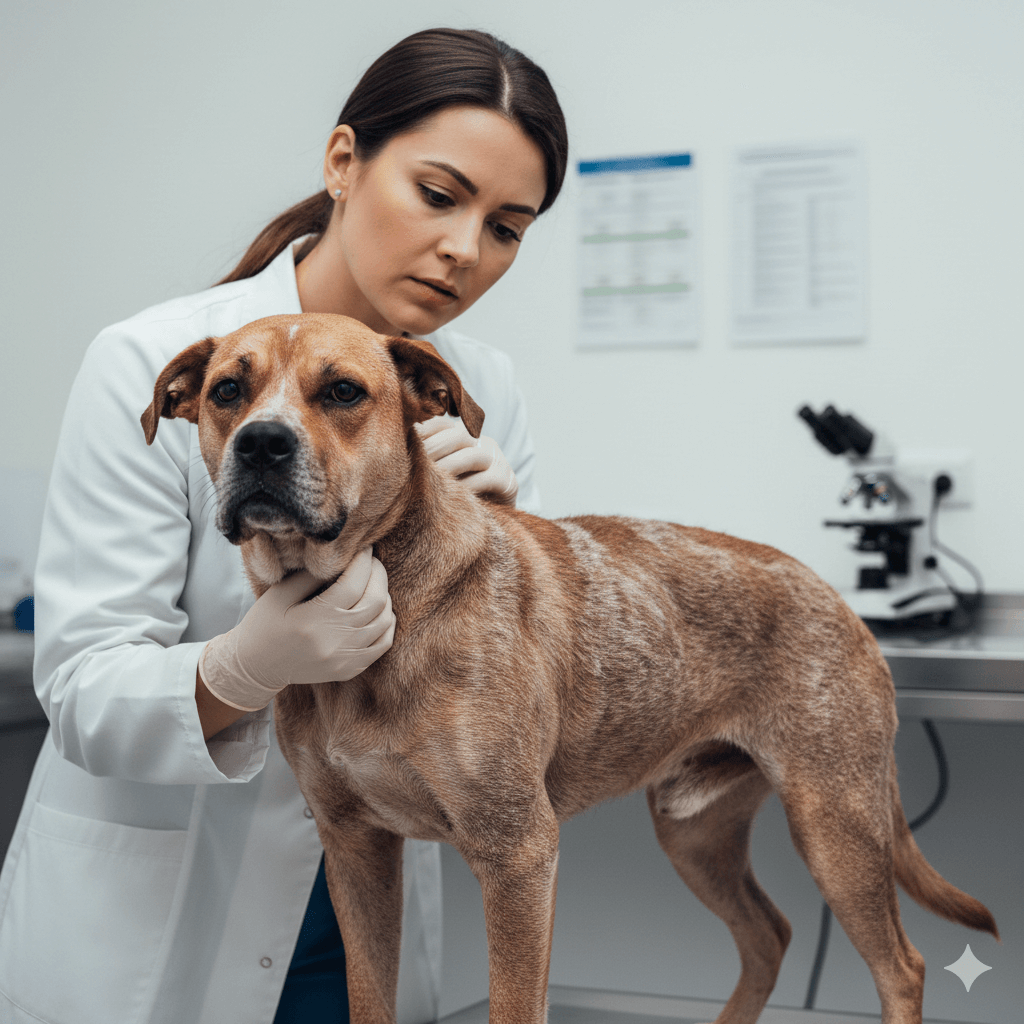What Causes Cat Constipation?
Constipation in cats is more common than many pet owners realize, yet it can be a sign of underlying health issues that require attention. While occasional constipation may not be alarming, persistent or severe cases can lead to discomfort and even serious complications. Understanding the potential causes of cat constipation is crucial for ensuring your feline friend stays healthy and happy. From dietary factors to medical conditions, let’s explore everything you need to know about this issue and how to address it effectively.
Common Causes of Cat Constipation
Several factors can contribute to constipation in cats. Identifying the root cause is essential for finding the right solution and preventing future occurrences.
Dehydration:
Cats are naturally prone to low water intake, especially if they consume dry food. Insufficient hydration can lead to hard, dry stools that are difficult to pass.Lack of Fiber:
A diet low in fiber can result in poor digestion and sluggish bowel movements, increasing the risk of constipation.Hairballs:
Excessive grooming can lead to hair accumulation in the digestive tract, causing blockages that hinder normal bowel function.Obesity or Lack of Exercise:
Overweight cats or those with sedentary lifestyles may experience reduced intestinal motility, contributing to constipation.Underlying Medical Conditions:
Issues such as kidney disease, arthritis, or megacolon can disrupt normal digestive processes and lead to chronic constipation.
By addressing these common causes, you can take proactive steps to alleviate your cat’s discomfort and improve their overall well-being.
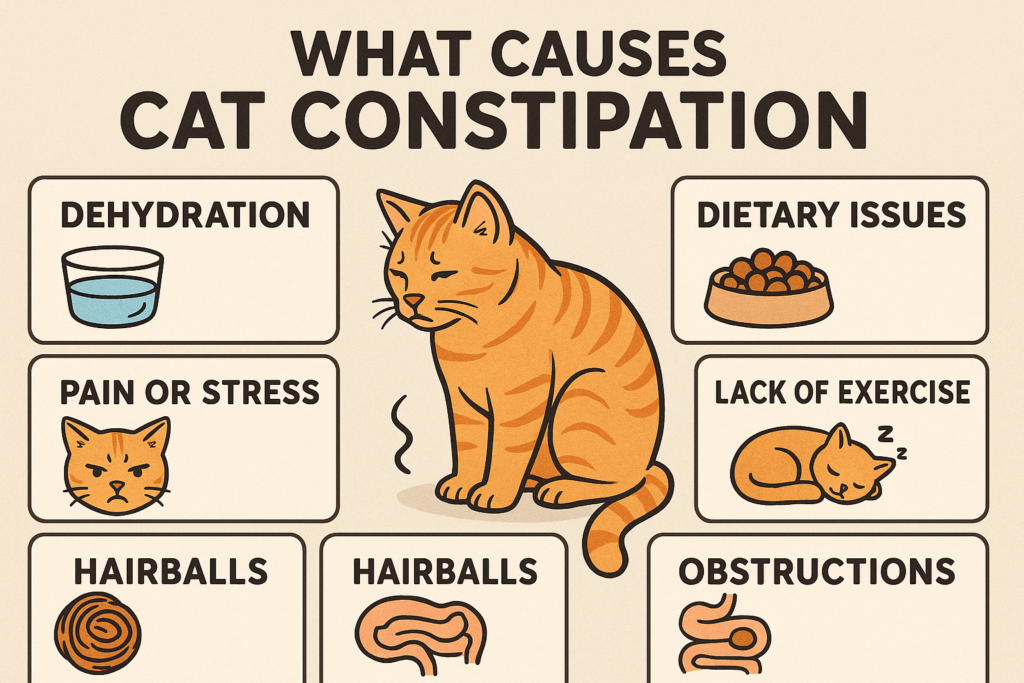
Signs Your Cat May Be Constipated
Recognizing the symptoms of constipation early can help you intervene before the condition worsens. Here are some signs to watch for in your feline companion.
Infrequent Bowel Movements:
If your cat hasn’t had a bowel movement in more than 24-48 hours, it could indicate constipation.Straining in the Litter Box:
Cats that spend excessive time in the litter box without producing stool may be struggling with constipation.Small, Hard Stools:
When your cat does defecate, the stools may appear dry, small, or unusually hard.Vomiting or Loss of Appetite:
Constipation can sometimes cause nausea, vomiting, or a refusal to eat due to abdominal discomfort.Behavioral Changes:
Signs of pain, lethargy, or irritability may suggest your cat is experiencing discomfort from constipation.
If you notice any of these symptoms, it’s important to monitor your cat closely and consult a veterinarian if the problem persists.
Check this guide 👉Understanding Cat Constipation: Best 7 Health Tips!
Check this guide 👉Cat Constipation Home Remedies: Best 7 Expert Tips!
Check this guide 👉Olive Oil for Cats Constipation: Best 7 Expert Tips!
Preventive Measures for Cat Constipation | Signs of Severe Constipation |
|---|---|
Ensure access to fresh water at all times | Vomiting or gagging during straining |
Incorporate wet food into their diet | Blood in stool or urine |
Provide regular grooming to reduce hairballs | Crying or vocalizing in pain |
Encourage physical activity and playtime | Swollen or tender abdomen |
Schedule routine vet check-ups | Inability to pass stool for over 48 hours |
How to Help Relieve Your Cat’s Constipation
If your cat is constipated, there are several steps you can take to provide relief. These methods focus on promoting healthy digestion and easing discomfort.
Increase Hydration:
Offer fresh water regularly and consider adding water fountains, which many cats find appealing.Switch to Wet Food:
Wet food contains higher moisture content than dry kibble, helping to soften stools and improve digestion.Add Fiber-Rich Foods:
Introduce pumpkin puree or fiber supplements to your cat’s diet after consulting your vet.Encourage Physical Activity:
Engage your cat in interactive play sessions to stimulate bowel movement and improve muscle tone.Use Laxatives or Stool Softeners (with Vet Approval):
Products like lactulose or other veterinary-prescribed treatments can help relieve stubborn constipation.
These strategies can often resolve mild cases of constipation, but always seek professional advice for persistent issues.
When to See a Veterinarian for Cat Constipation
While occasional constipation might resolve on its own, certain situations warrant immediate veterinary attention. Knowing when to seek help ensures your cat receives timely care.
Prolonged Lack of Bowel Movement:
If your cat hasn’t passed stool in over 48 hours, it’s time to contact your vet.Visible Pain or Distress:
Signs of significant discomfort, such as crying or hiding, indicate a need for urgent evaluation.Blood in Stool or Urine:
The presence of blood suggests an underlying issue requiring medical intervention.Swollen Abdomen:
A distended belly could signal impaction or another serious condition that needs prompt treatment.Chronic Recurrence:
Frequent episodes of constipation may point to an ongoing health problem that requires diagnosis and management.
Early intervention can prevent complications and ensure your cat remains comfortable and healthy.
Dietary Adjustments to Prevent Constipation
Making dietary changes can significantly reduce the risk of constipation in cats. Here are some adjustments to consider for promoting better digestion.
Introduce Moisture-Rich Foods:
Adding canned food or broth to your cat’s meals increases water intake and softens stools.Limit Dry Kibble Consumption:
While convenient, dry food has low moisture content, which can contribute to dehydration and constipation.Incorporate Natural Fiber Sources:
Plain pumpkin puree or cooked green beans can add fiber without upsetting your cat’s stomach.Avoid Sudden Diet Changes:
Gradual transitions between foods prevent digestive upset and allow your cat’s system to adjust.Monitor Portion Sizes:
Overfeeding can lead to obesity, which is a known risk factor for constipation.
With thoughtful dietary planning, you can support your cat’s digestive health and reduce the likelihood of constipation.
Environmental Factors That Contribute to Constipation
Your cat’s environment plays a role in their overall health, including their susceptibility to constipation. Addressing these factors can make a meaningful difference.
Stressful Living Conditions:
Loud noises, new pets, or frequent household changes can disrupt your cat’s routine and affect their digestion.Limited Access to Water:
Placing water bowls in quiet, accessible areas encourages your cat to drink more frequently.Sedentary Lifestyle:
Indoor cats, especially, may lack sufficient physical activity to stimulate healthy bowel movements.Dirty Litter Boxes:
Cats may avoid using unclean litter boxes, leading to retained stool and eventual constipation.Age-Related Mobility Issues:
Older cats may struggle to reach their litter box or move around enough to maintain regular bowel function.
Creating a supportive environment minimizes stressors and promotes better digestive health.
Alternative Remedies for Mild Constipation
For mild cases of constipation, alternative remedies can complement traditional treatments. Always consult your vet before trying new approaches.
Probiotics for Cats:
Probiotic supplements can restore beneficial gut bacteria and improve digestive function.Herbal Remedies:
Certain herbs, like slippery elm bark, have natural soothing properties that may aid digestion.Massage Therapy:
Gently massaging your cat’s abdomen can stimulate intestinal movement and relieve discomfort.Warm Compresses:
Applying a warm towel to your cat’s belly relaxes muscles and encourages bowel activity.Hydration Boosters:
Adding bone broth or diluted tuna water to meals entices picky drinkers to consume more fluids.
These alternatives offer gentle ways to support your cat’s recovery while working with your veterinarian for comprehensive care.
Frequently Asked Questions About Cat Constipation
Can dehydration cause constipation in cats?
Yes, insufficient water intake is one of the most common causes of constipation in cats.
Is it safe to give my cat laxatives?
Only use laxatives prescribed by your veterinarian, as improper use can harm your cat.
How can I encourage my cat to drink more water?
Try using water fountains, placing multiple bowls around the house, or flavoring water lightly with tuna juice.
What role do hairballs play in constipation?
Hairballs can obstruct the digestive tract, leading to difficulty passing stool. Regular grooming helps minimize this risk.
Can stress cause constipation in cats?
Yes, environmental changes or anxiety can disrupt your cat’s digestive system, potentially leading to constipation.
Promoting Digestive Health for Your Feline Friend
Understanding what causes cat constipation empowers you to take proactive steps toward maintaining your pet’s digestive health. By addressing potential triggers like dehydration, poor diet, or lack of exercise, you can prevent many instances of constipation before they occur. However, staying vigilant for signs of trouble and seeking veterinary care when needed ensures your cat receives the best possible support. Remember, a happy, healthy cat starts with attentive care—and keeping their digestive system in check is a vital part of that journey.
How to Check Your Cat for a Fever: Best 7 Expert Tips! – Learn the signs, safe temperature checks, and when to see a vet. Keep your feline healthy and happy!
How to Check Your Dog for a Fever: Best 7 Expert Tips! – Learn the signs, safe temperature checks, and when to see a vet if your dog has a fever.
Hypothyroidism and Its Impact on Cat Skin: Best 7 Tips! – Discover how hypothyroidism affects your cat’s skin, spot symptoms early, and learn effective care strategies to keep your feline healthy.
Hypothyroidism and Its Impact on Dog Skin: Best 7 Tips! – Discover how hypothyroidism affects your dog’s skin, spot symptoms early, and learn effective care strategies to restore their health.

